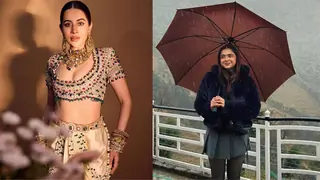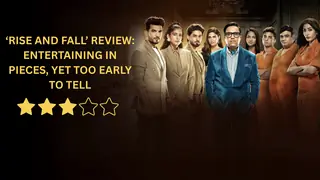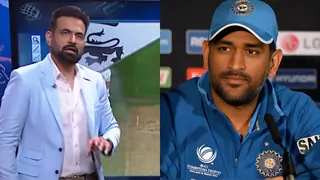War Isn’t a Trend: Apoorva and Sufi’s now deleted video sparks debate on influencer responsibility
The caption, tone, and context of the video were perceived by many as making light of the ongoing India-Pakistan conflict, a situation marked by real fear, loss, and bloodshed.
Published: Saturday,May 10, 2025 08:48 AM GMT-06:00

In an age where content is currency and virality is king, the boundary between personal expression and public responsibility is often blurred. The recent controversy involving fashion influencer Sufi Motiwala and Apoorva Mukhija popularly known as influenzers on social media has ignited a debate about where that boundary lies, especially in times of national turmoil.
The incident unfolded on Instagram, where Mukhija shared a now-deleted story featuring Motiwala stocking up on chips and other snacks. The caption, tone, and context were perceived by many as making light of the ongoing India-Pakistan conflict, a situation marked by real fear, loss, and bloodshed. As reports flooded in of Pakistani drone attacks and missile strikes damaging Indian military infrastructure and even health facilities, the optics of influencers engaging in what looked like “war-prep” for entertainment didn't sit well with the public.
The backlash was swift. One user commented, “I just don’t understand their excitement level for war. People are suffering on the border, the army is risking their lives, and these kinds of people sit back and enjoy with chips and popcorn as if they were watching a movie. Shame on these kind of humans.”
And yet, in the chaos of digital outrage, there were also voices calling for perspective. Another netizen remarked, “Okay guys, when are we gonna stop? This is absurd. Why are all of you hanging onto jokes made by an influencer rather than focusing on more serious crimes that are happening in the city? When are we gonna change, just?”
These contrasting reactions illustrate a complex cultural moment: a nation at war grappling with the realities of 24/7 content creation, and the moral compass or lack thereof that guides it.
To understand the depth of public reaction, it's important to acknowledge the gravity of the situation on the ground. Since the launch of India’s Operation Sindoor on May 7, an operation in retaliation to the brutal Pahalgam attack tensions have escalated. Pakistan has reportedly used drones, long-range weapons, and fighter jets to attack military installations in Udhampur, Bhuj, Pathankot, and Bathinda. Civilian areas like schools and health facilities were not spared either. According to military reports, over 26 infiltration attempts by air have been thwarted, with India retaliating strategically but suffering damage in the process.
https://www.instagram.com/reel/DJdwWhmsSpE/?utm_source=ig_web_copy_link&igsh=MzRlODBiNWFlZA==This is not the time for satire or spectacle. In such high-stakes moments, influencers must realize that their platforms are not just places for fashion hauls or comedic skits; they are public stages with audiences that span millions. With that reach comes a deep responsibility especially when the country is mourning, mobilizing, and resisting threats to its sovereignty.
That said, not every piece of content made during conflict is inherently tone-deaf or disrespectful. As one user pointed out, “I know it's a serious situation, but we need to keep our spirits high. We need energy to face these crucial times. It's okay to try and laugh with your loved ones… Let’s not fight over petty things and instead stand united.”
This sentiment is important too. As a nation, we must preserve morale. Laughter and light moments are not crimes; they are human responses to stress. But the issue here is how that humor or levity is framed. Is it supportive, uplifting, or is it dismissive, mocking the suffering of others?

The fine line is intent—and impact. Influencers are not journalists, nor are they bound by editorial guidelines, but that doesn’t exempt them from basic ethics. Creating content in a war-like scenario should come with extra layers of thought: Who might this hurt? Does this trivialize pain? Am I informed enough to joke about this?
Apoorva Mukhija did eventually delete the video, possibly recognizing the insensitivity of the post. That’s a start. But accountability shouldn't end with deletion—it should spark introspection. Content creators wield immense cultural power today. They influence opinions, behavior, and often, public discourse. That power must be used with empathy, especially when the nation is navigating conflict and trauma.
The takeaway here is not to silence influencers, but to encourage a pause before pressing "post." It is to remind them that with visibility comes responsibility, and with influence comes the burden of making wise, compassionate choices.
Join Our WhatsApp Channel
Stay updated with the latest news, gossip, and hot discussions. Be a part of our WhatsApp family now!
Join NowYour reaction
 Nice
Nice Great
Great Loved
Loved LOL
LOL OMG
OMG Cry
Cry Fail
Fail

















7 Comments